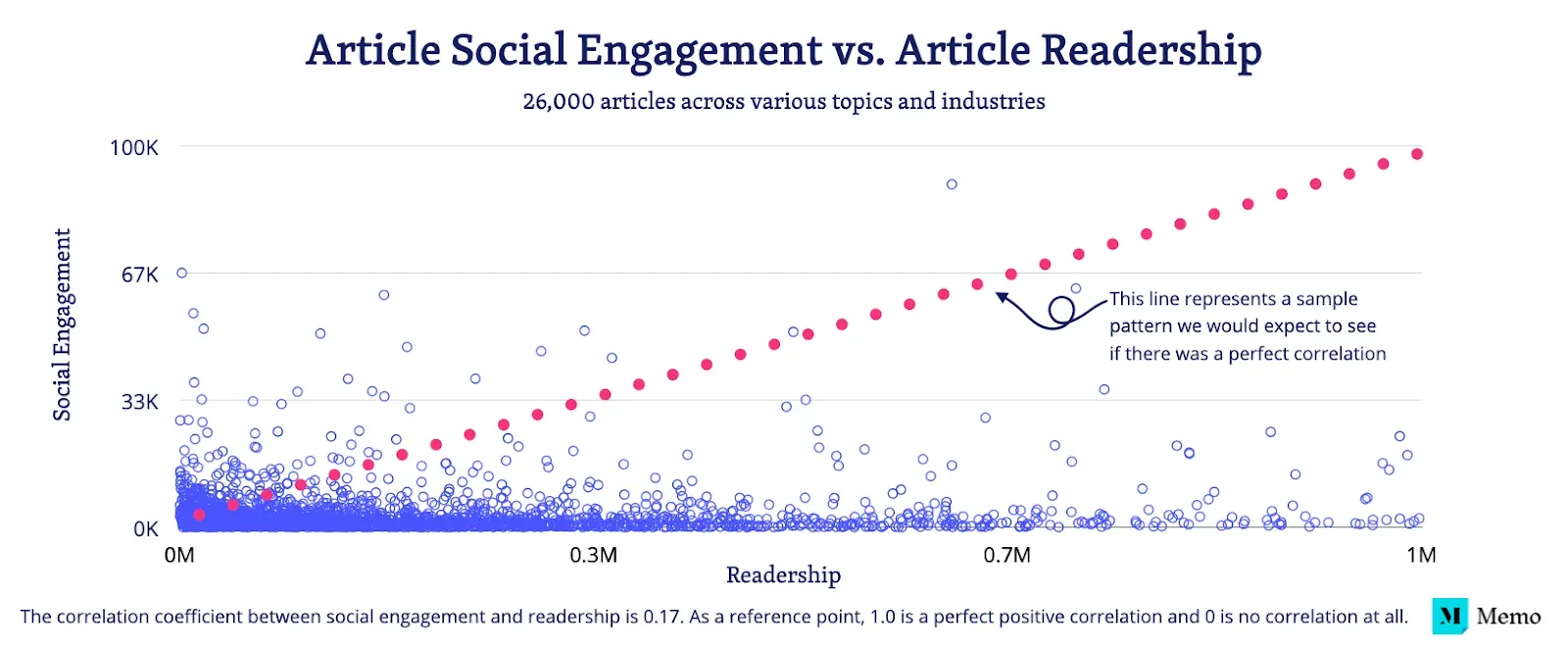There was a time when posting to social media was the single best way to make it so that you would get some people to read your content. In spite of the fact that this is the case, recent shifts in the landscape have resulted in this tried and tested method yielding worse results than might have been the case otherwise.
It turns out that fewer than 1% of the readers that news articles receive come from social media with all things having been considered and taken into account. This might sound surprising since publications do get a fair bit of traction on social media, but these interactions are not translating into a higher amount of readership.
With all of that having been said and now out of the way, it is important to note that all of this is based on a study conducted by Memo. It’s essentially a repeat of the same study that Memo conducted in 2022, and it shows that the trend has mostly been in the negative.
Image: AIgen
In this study, Memo studied the correlation between likes, comments and shares on social media and the total number of unique visitors heading to a particular website featuring said content. The correlation was below 0.1 from a scale of 0 to 1 pretty much across the board, although there were a few exceptions that could be noted here or there.
Politics, sports, and crises were topics that saw a bit of correlation between social media engagement and readership. This just goes to show that there are a few opportunities to increase your reader base through social media, but they are scant and far between.
It remains to be seen how this will impact social media usage down the line. The data suggests that people interact with content on social media through the headline and don’t actually dive in to read whatever has been written. More research will be required to say anything conclusive either way, and changing algorithms might be playing a role in the data that has been obtained over the course of this study.
Read next: New AI-Based Browser Arc Search Is Serving Competition To Chrome And Safari
It turns out that fewer than 1% of the readers that news articles receive come from social media with all things having been considered and taken into account. This might sound surprising since publications do get a fair bit of traction on social media, but these interactions are not translating into a higher amount of readership.
With all of that having been said and now out of the way, it is important to note that all of this is based on a study conducted by Memo. It’s essentially a repeat of the same study that Memo conducted in 2022, and it shows that the trend has mostly been in the negative.
Image: AIgen
In this study, Memo studied the correlation between likes, comments and shares on social media and the total number of unique visitors heading to a particular website featuring said content. The correlation was below 0.1 from a scale of 0 to 1 pretty much across the board, although there were a few exceptions that could be noted here or there.
Politics, sports, and crises were topics that saw a bit of correlation between social media engagement and readership. This just goes to show that there are a few opportunities to increase your reader base through social media, but they are scant and far between.
It remains to be seen how this will impact social media usage down the line. The data suggests that people interact with content on social media through the headline and don’t actually dive in to read whatever has been written. More research will be required to say anything conclusive either way, and changing algorithms might be playing a role in the data that has been obtained over the course of this study.
Read next: New AI-Based Browser Arc Search Is Serving Competition To Chrome And Safari



